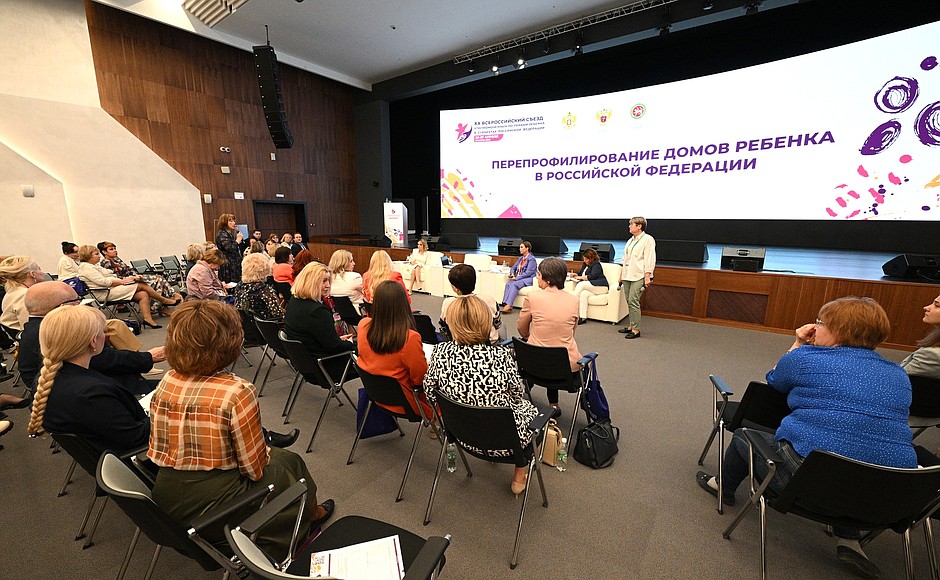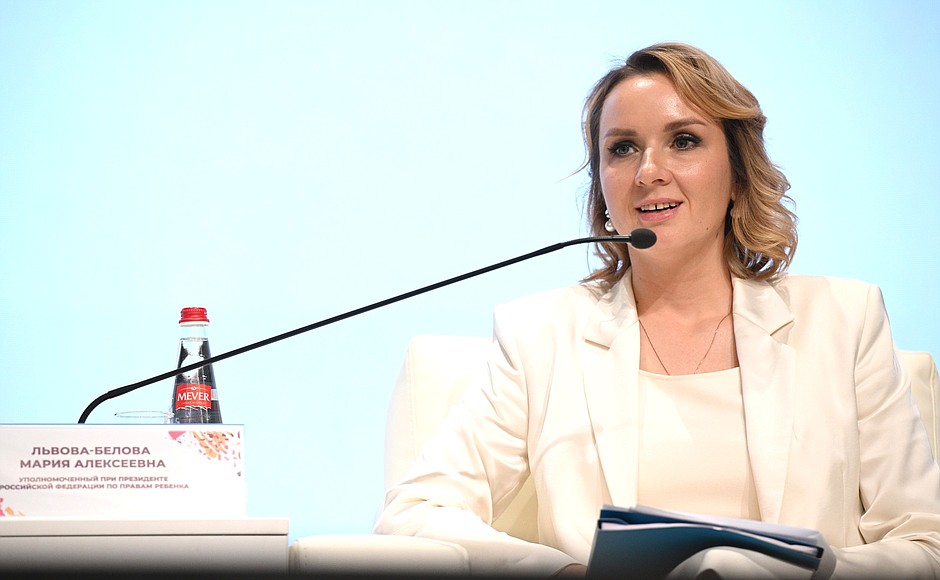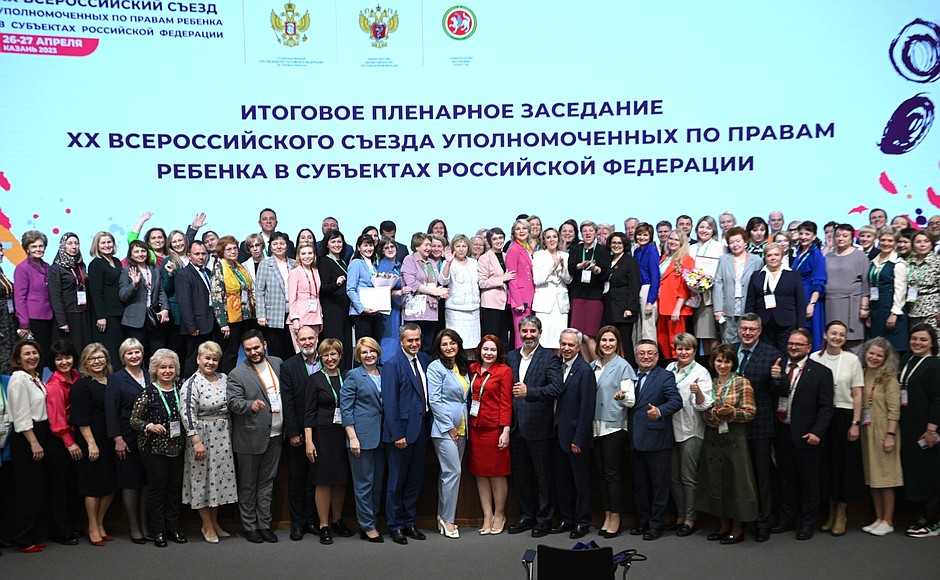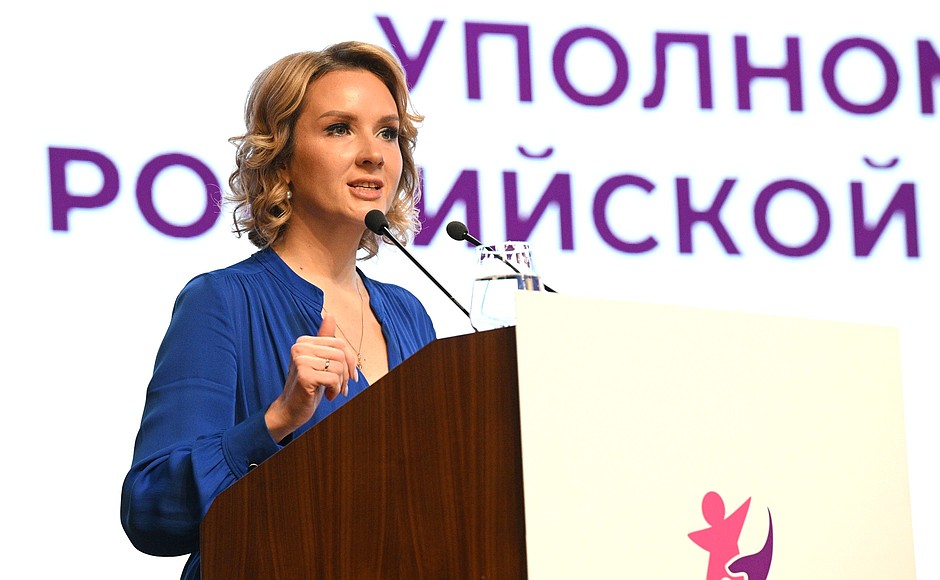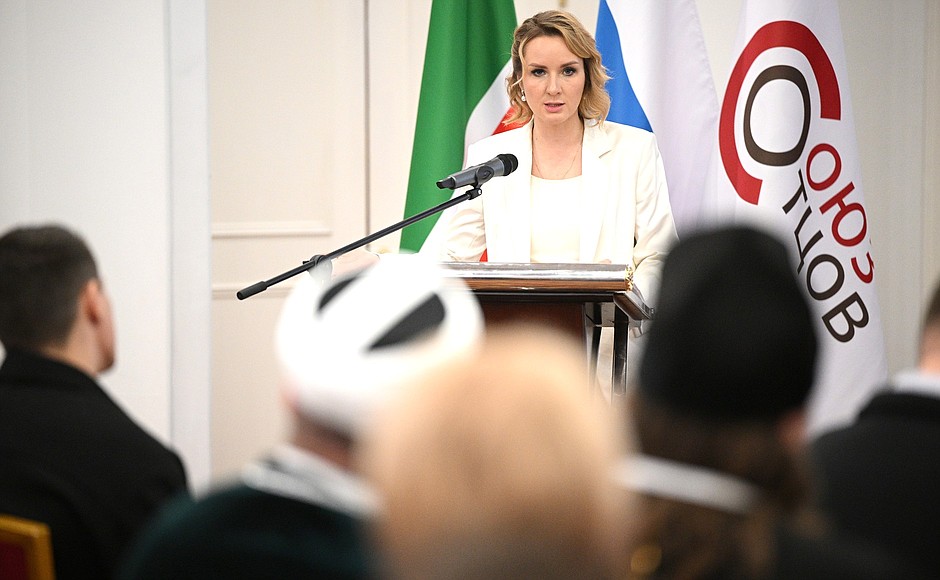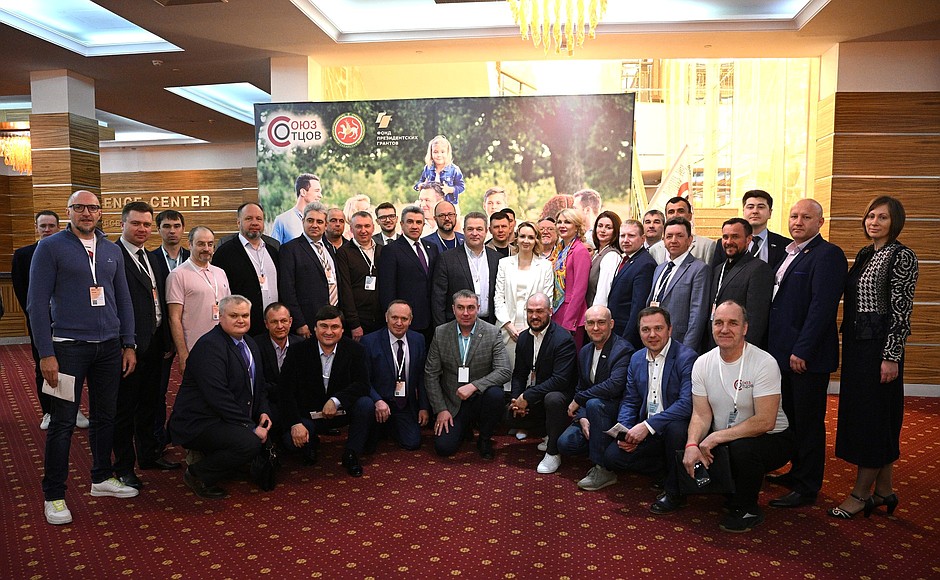The forum, organised with the assistance of the Government of the Republic of Tatarstan, Head of the Republic Rustam Minnikhanov and the Ministry of Health of Russia, brought together 80 regional children's ombudspersons, as well as representatives of relevant federal and regional ministries and departments, practitioners, healthcare experts and public figures. The delegates discussed a wide range of issues related to providing medical care to children. Innovative social and medical practices of the Republic of Tatarstan were presented at the offsite venues of the forum.
At the opening of the forum, Maria Lvova-Belova said that in 2022, the Federal Commissioner’s Office received 894 appeals on children health issues. The main topics included medicine supply, medical care, vaccination and disease prevention.
The Commissioner noted the effectiveness of cooperation between commissioners for children's rights and the Ministry of Health in various areas of children's health protection.
Addressing the forum participants, Minister of Health Mikhail Murashko, in particular, said that since 2023, newborns in Russia have been screened for congenital and hereditary diseases, with a total of 40 types of such diseases being detected – this is the highest number in the world, and today Russia has the lowest infant mortality rate in the country’s history.
In addition, Maria Lvova-Belova took part in the opening of the Russian conference Dads Against Bullying, which was held in Kazan during the Congress of Commissioners for Children’s Rights. The event was organised by the Union of Fathers public organisation, which is part of the Parental Platform under the Presidential Commissioner for Children's Rights. The conference focused on the ways to combat bullying of children in the educational environment. According to experts, more than half of children are regularly bullied at school, on the internet, and by their friends and relatives.
The children’s ombudsperson noted that children themselves declare this problem, and a large number of appeals have recently been received. They are being worked on together with the parent community, teachers, and psychologists. Last year, regional commissioners held parent-teacher meetings dedicated to the fight against bullying and developed appropriate action mechanisms. Among the key problems that make it difficult to provide timely assistance to victims of bullying, the Commissioner noted the lack of a legally fixed concept of “bullying” and the lack of legal prevention mechanisms.
Maria Lvova-Belova noted the importance of comfortable and safe teen spaces being opened in the regions at her initiative, which, among other things, can become platforms for introducing bullying prevention methods. At the moment, 23 teen centres operate in Russia, and another 65 centres will open by the end of the year.
Summing up the results of the Russian Congress of Commissioners for Children's Rights, Maria Lvova-Belova noted that the forum brought together caring professionals and high-level experts, and practical solutions were made from each discussion that would form the basis of new pilot projects.
The next Russian Congress of Commissioners for Children's Rights will be held in October in the Khabarovsk Territory, and be dedicated to the development of a human rights institution.
